In significant boost to the use of mediation in cross-border commercial disputes, international dispute resolution institutions from five countries today signed agreements with the Singapore International Mediation Centre (SIMC).
The signings of two memoranda of understanding (MOU) and three joint protocols demonstrate a strong show of solidarity among international mediation institutions to promote and facilitate the use of mediation in cross-border commercial disputes. Such disputes typically hail from a wide range of sectors, including banking, finance and investment, energy, oil and gas, information communications and technology (ICT), infrastructure and construction, joint ventures of all kinds, logistics, manufacturing, mining, mobility, pharmaceuticals, sale of goods, shipping and professional services.
MOU partners
- International Arbitration and Mediation Centre (IAMC), Hyderabad
- Vietnam Mediation Centre, part of the Vietnam International Arbitration Centre
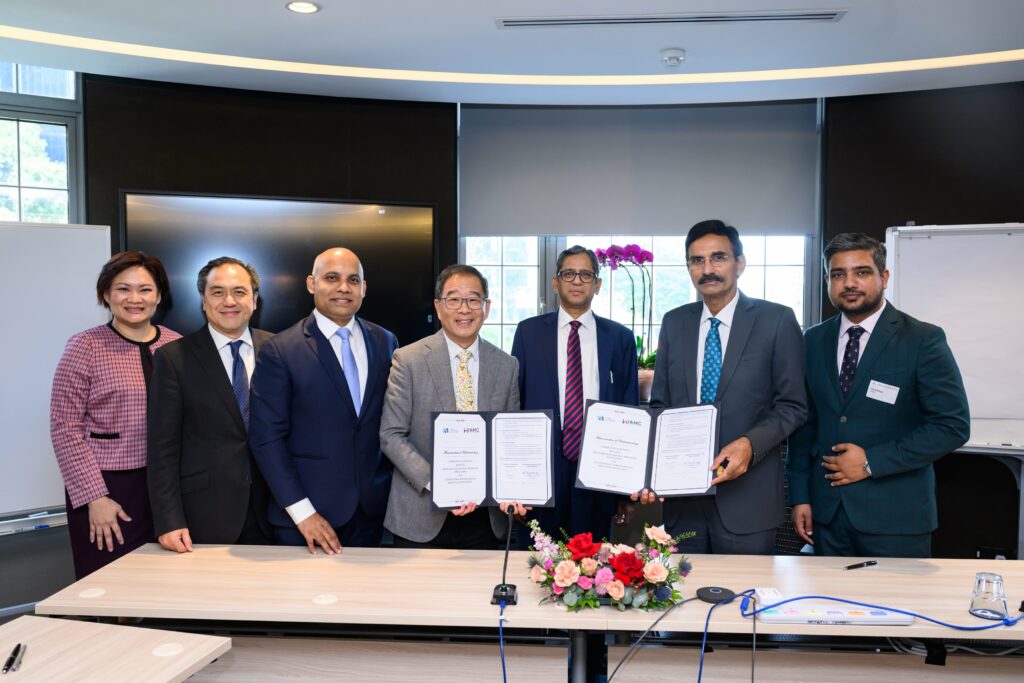
The MOUs with these institutions include the agreement to promote international mediation and jointly explore the possibility of organising conferences, workshops, seminars, training programmes and other events.
“IAMC is happy to collaborate with SIMC which is one of the leading mediation centres in the world. This partnership is a significant step towards enhancing mediation practices in India and Singapore. By synergizing the rich expertise and diverse cultural perspectives of both jurisdictions, we will set a global standard for resolving disputes and make mediation a preferred mode of dispute resolution,” said Mr Tariq Khan, Registrar, IAMC Hyderabad.
“This collaboration between two mediation powerhouses will increase investor confidence and ensure swift, equitable solutions for sustainable commercial growth,” explained Mr Khan.
“We believe that the MOU between VMC and SIMC will be an important milestone in the cooperation relationship between the two organizations. At the same time, it will contribute to the promotion and development of commercial mediation in the two countries as well as in the world, raising the awareness among the community and businesses about amicable dispute resolution methods – bringing Vietnamese commercial mediation closer to international commercial mediation” said Mr. Phan Trong Dat, Acting Director of the Vietnam Mediation Centre.
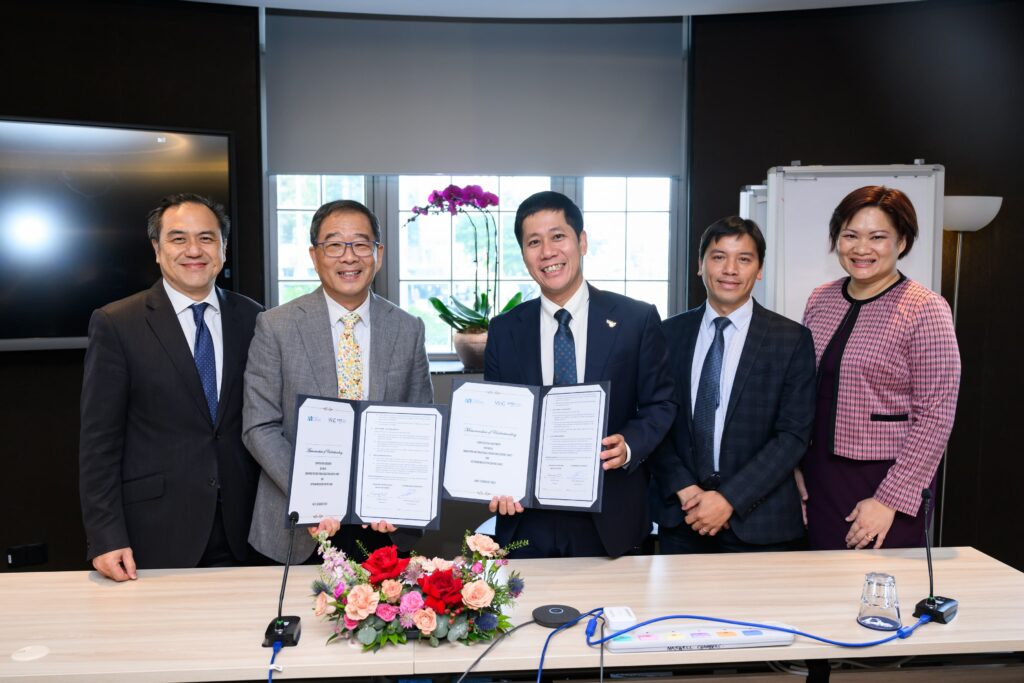
Joint Protocol partners
- Indonesia Dispute Board (IDB)
- Japan International Mediation Centre, Kyoto (renewal of protocol first signed in 2020 and subsequently renewed in 2022)
- TOBBUYUM Mediation and Dispute Resolution Centre, Türkiye [online signing]
Joint Protocols signed with the above institutions are bilateral arrangements to cross-refer and jointly administer mediation cases. A unique feature of such protocols is the ability to appoint co-mediators, who speak the language and understand the respective business practices and cultures of each jurisdiction involved. Here is an interview with two co-mediators in a 2021 case which was co-managed by SIMC and JIMC-Kyoto.
Commenting on the experience with his SIMC co-mediator Mr Gregory Vijayendran SC, Mr Yoshihiro Takatori, the co-mediator appointed by JIMC-Kyoto said, “The first case under this joint protocol was a dispute over a joint venture between a Japanese entity and an Indian entity. The combination of the mediators from different legal cultures efficiently facilitated the parties’ negotiations and bridged the language and culture gap. Using what we have dubbed the “Greg/Yoshi Schedule”, parties were able to set out their commercial objectives, identify their common interests and track the progress of their areas of agreement. All this was achieved through a fully online hearing and was successfully resolved, ahead of the allocated time, in two days.”
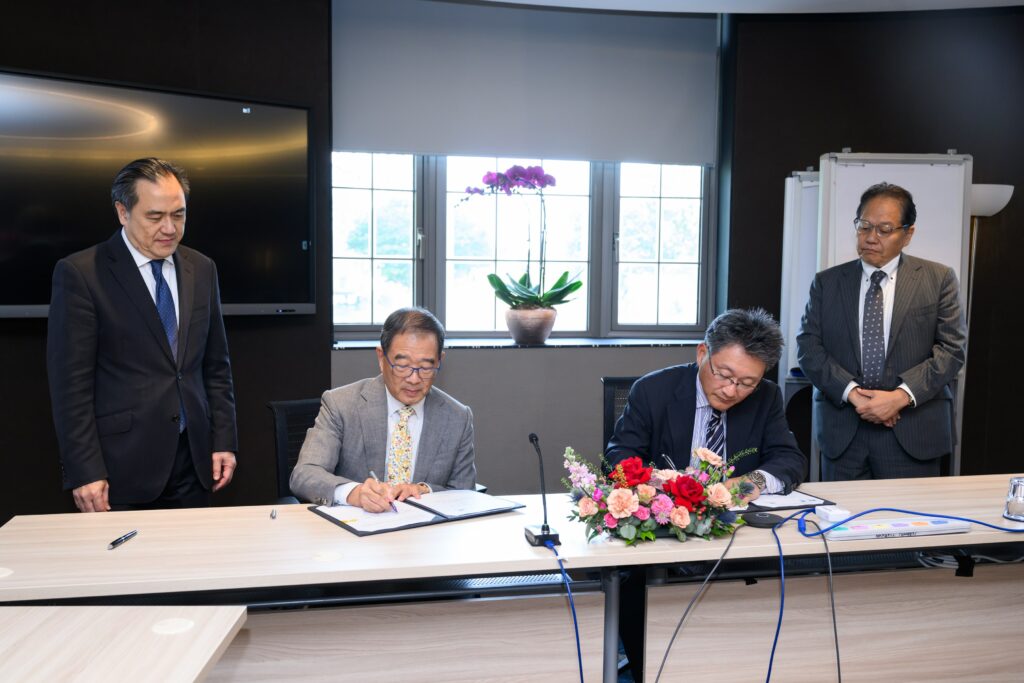
“The Indonesia Dispute Board is delighted to partner SIMC to encourage the use of mediation as the first option in cross-border commercial disputes. Not only is it a speedy and cost-efficient process, but it also gives parties full control and creativity over the outcome. We hope more Indonesian companies with business dealings abroad will take up this flexible and confidential option which does not prejudice their future rights to arbitration or litigation,” said Dr Sabela Gayo, Secretary-General, IDB.
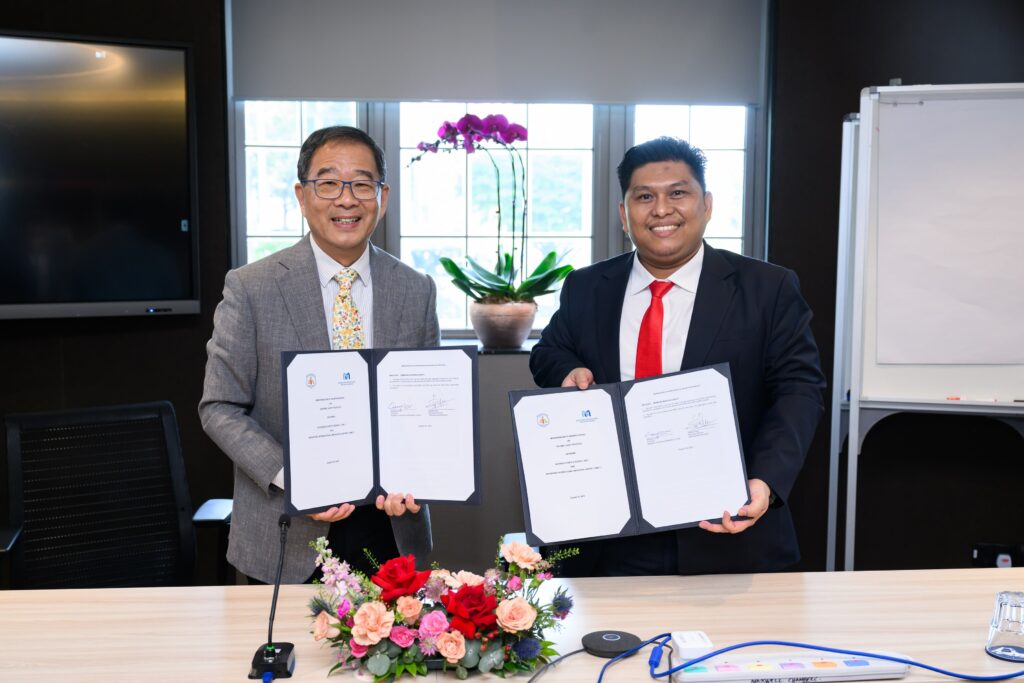
Notably, these signings took place in a mediation room at Maxwell Chambers, the world’s first integrated dispute resolution complex, during Singapore Convention Week (SCW). SCW is held each year to commemorate the first signing of the Singapore Convention on Mediation in 2019 and features a week-long series of legal and dispute resolution-related events. It was organised by Singapore’s Ministry of Law, the United Nations Commission on International Trade Law (UNCITRAL) and over 20 local and international partner organisations. This year’s SC Week took place from 28 August to 1 September.
The Singapore Convention is a multilateral treaty which provides international recognition and enforcement of mediated settlement agreements. Fifty-six countries have signed the Convention so far. When it was opened for signature in 2019, 46 countries signed on the first day alone – a record for any United Nations treaty. The courts in 11 of these 56 jurisdictions now recognise and enforce cross-border mediate settlement agreements. More countries are expected to sign and/or ratify the Singapore Convention in the near future, expanding the global network where such agreements can be registered in the courts of jurisdictions where enforcement is sought. The full list of signatory countries can be found at https://www.singaporeconvention.org/jurisdictions
Türkiye was part the first group of 46 Convention signatories in 2019 and is one of the 11 jurisdictions where the Convention has entered into force. The TOBBUYUM Mediation and Dispute Resolution Centre, which SIMC has partnered, is an autonomous entity within the Union of Chambers and Commodity Exchanges of Türkiye (TOBB), serving the country’s 125 business chambers and commodity exchanges. These are located across Türkiye’s 81 provinces and count 2.5 million Turkish companies as members.
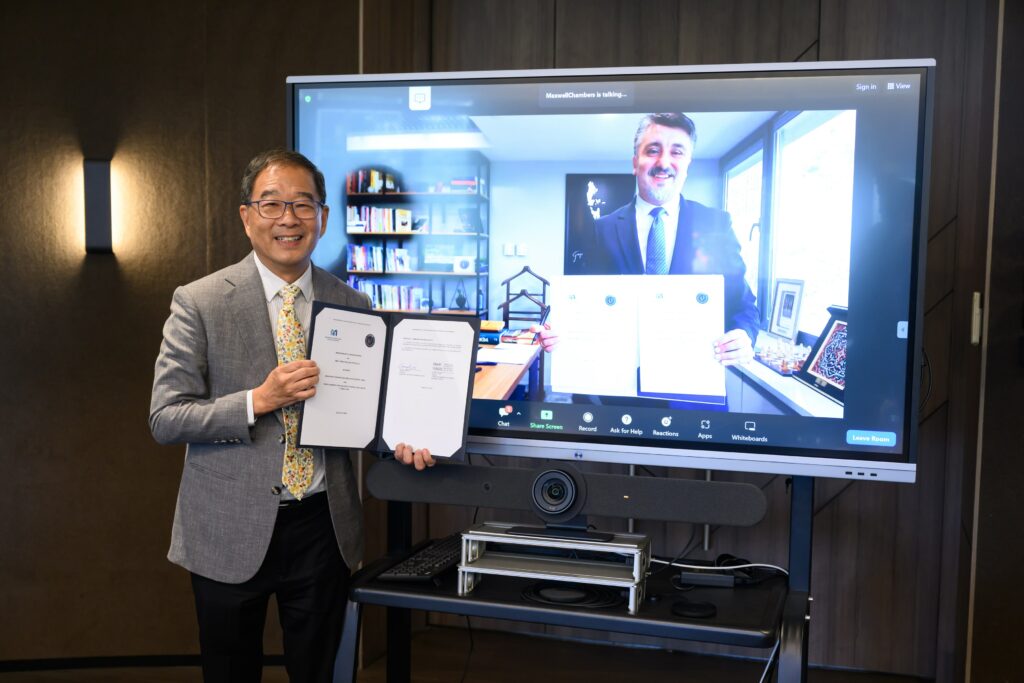
“I strongly believe that this agreement signed between SIMC and TOBBUYUM will be one of the agreements that will shape the future of the Singapore Convention between the two countries. I also foresee that we will break new ground in terms of mediation practices,” said Dr Onur Yüksel, CEO, TOBBUYUM.
“We are very excited about these international partnerships with IAMC Hyderabad, IDB, JIMC-Kyoto, TOBBUYUM and VMC,” said George Lim SC, Chairman, SIMC.
“Previous MOUs with other countries like China have yielded interesting schemes and arrangements, such as the Mediation-Arbitration Protocol with the Shenzhen Court of International Arbitration, and being added as the first foreign mediation centre on the China Council for the Promotion of International Trade (CCPIT) Hangzhou Intellectual Property and Commercial Mediation Cloud Platform. Last month, we inked an MOU with the Shanghai Commercial Mediation Centre and Shanghai International Arbitration Centre. Such novel services exist for the benefit of cross-border businesses, and we hope more companies and their lawyers will come speak to us about availing themselves to these services when contracting in, or with counterparties from, these countries,” said Mr Lim.
